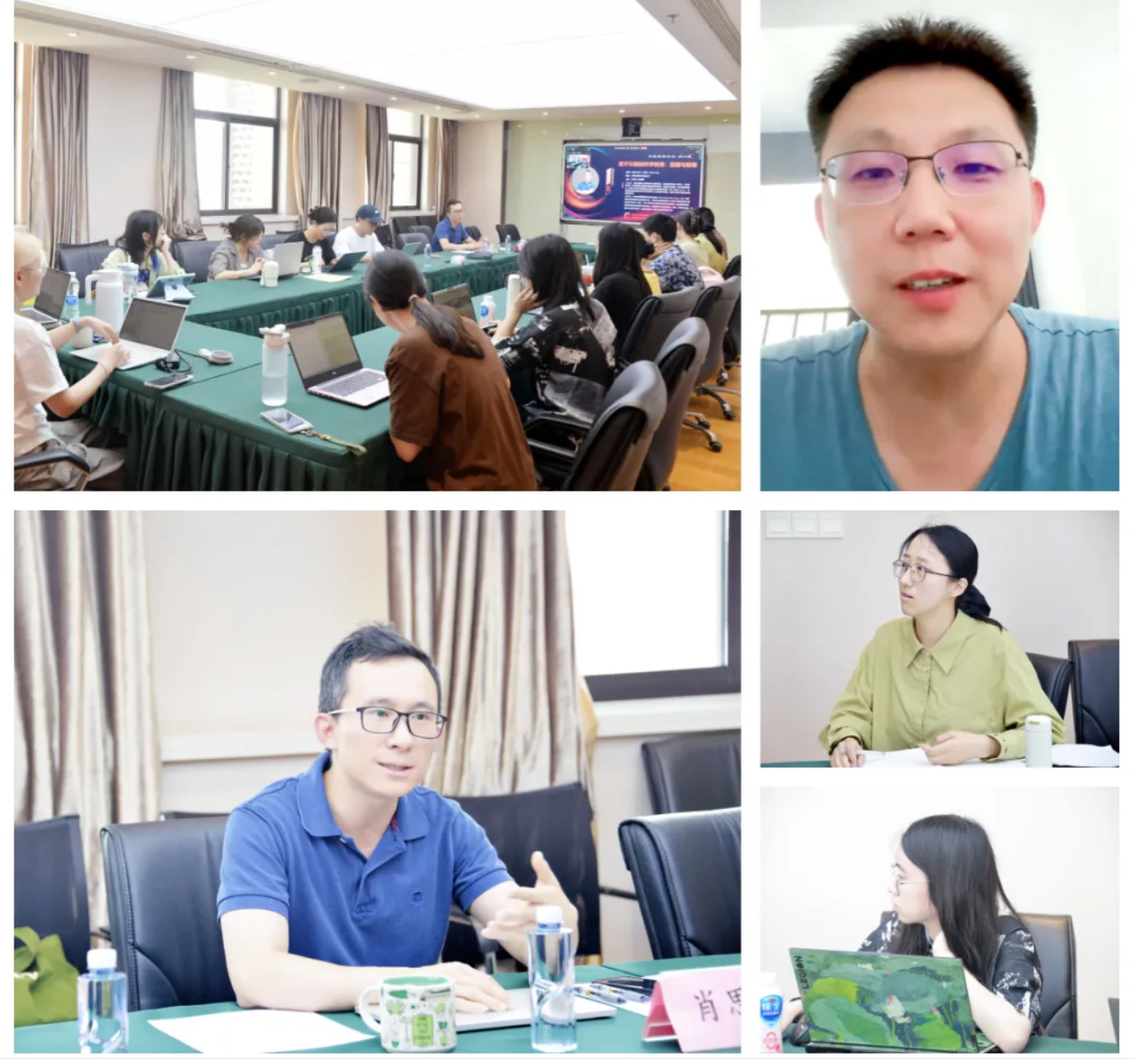ICI HuaXia Curriculum Forum║Professor Ke Li from the University of Washington, Seattle, shared his views on “Issue-based Science Education: Retrospect and Prospect”
2025-07-07
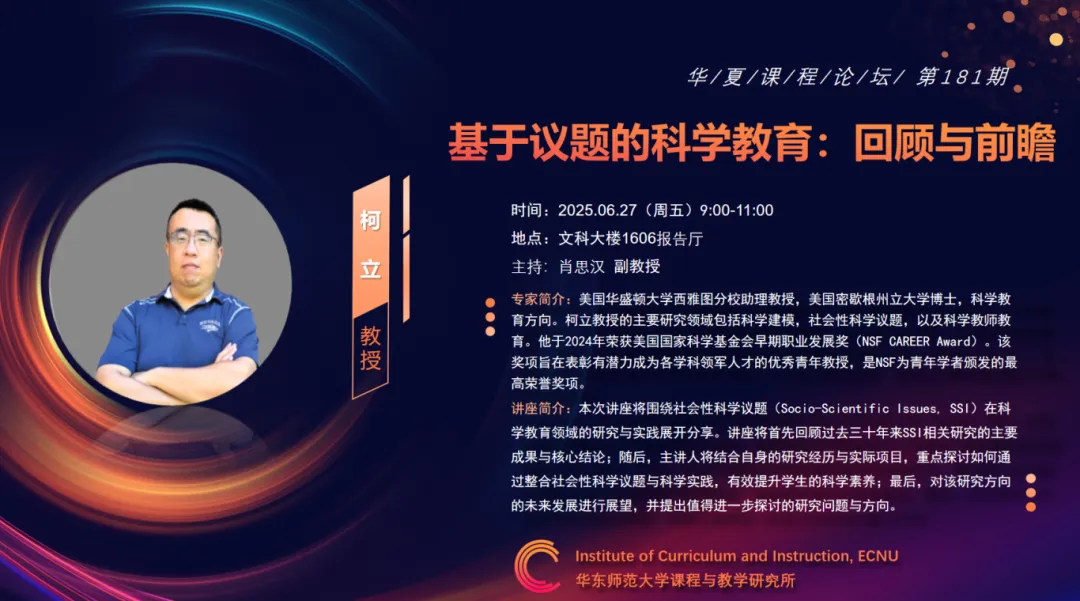
On the morning of June 27th, Dr. Ke Li, Assistant Professor at the University of Washington, Seattle, was a guest speaker at the 181st Huaxia Curriculum Forum online, delivering a captivating academic presentation to teachers and students on the topic of "Issue-Based Science Education: A Review and Outlook."
This forum was also one of the off-campus expert lectures for the Fo-Nian Project, "Teaching Based on Social Science Issues," co-led by Professor Shen Xiaomin and Associate Professor Xiao Sihan from the Institute of Curriculum and Instruction at East China Normal University, and Associate Professor Fu Guopeng from the Institute of International and Comparative Education. Associate Professor Xiao Sihan moderated the presentation.
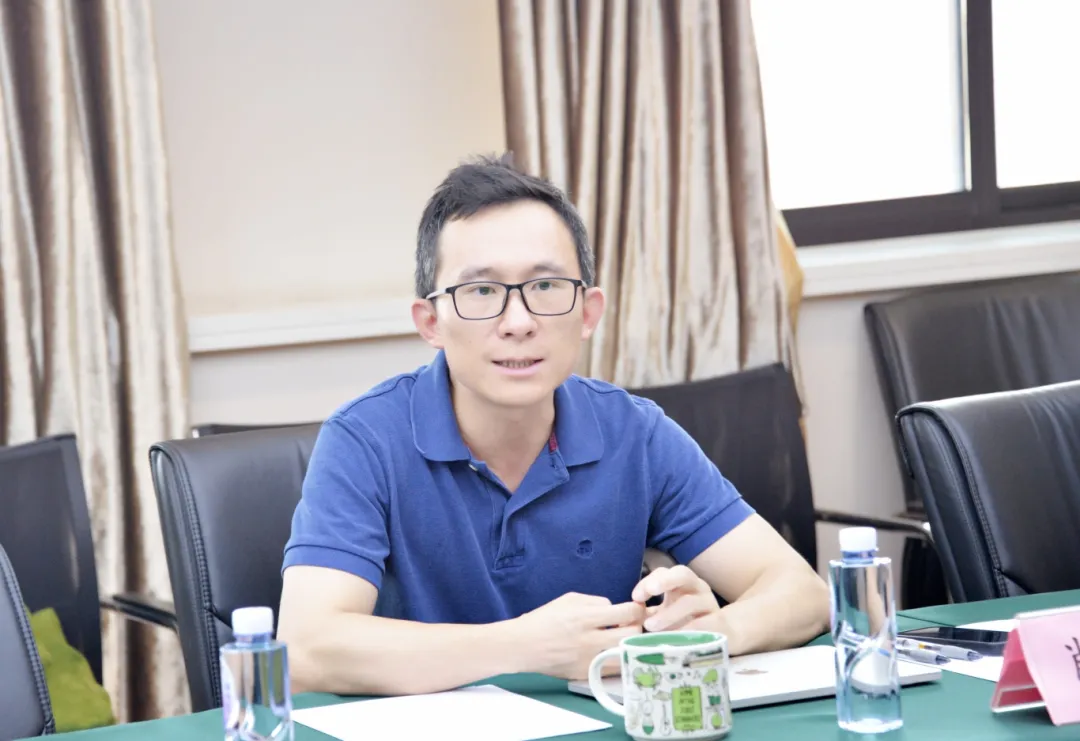
Dr. Ke Li first introduced the origin, connotation, and educational significance of the concept of socioscientific issues. These are controversial social issues that are closely related to scientific knowledge but also have potential social consequences, such as climate change, genetic engineering, and environmental protection. Introducing socioscientific issues into science education not only helps students gain a deeper understanding of scientific concepts and develop scientific thinking, but also encourages student participation in social affairs and allows them to apply scientific knowledge learned in school to broader social life. Dr. Ke Li reviewed nearly three decades of research in this field and detailed the positive impact of issue-based teaching on science education, particularly transformative science teaching.
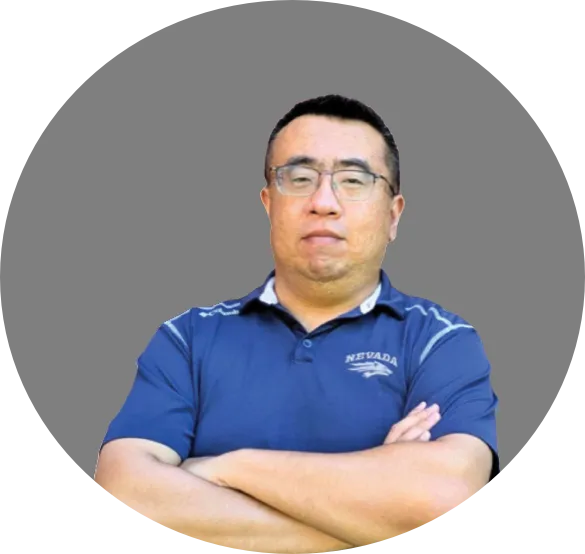
Professor Ke Li is an Assistant Professor at the University of Washington, Seattle, and holds a Ph.D. in Science Education from Michigan State University. His research focuses on scientific modeling, social science issues, and science teacher education. In 2024, he received the NSF CAREER Award, the highest honor bestowed by the NSF on young scholars. This award recognizes outstanding young professors with the potential to become leaders in their respective disciplines.
Dr. Ke Li detailed his academic journey and his involvement in issue-based teaching. Through this narrative, he explored the relationship between scientific modeling, scientific debate, curriculum development, and teacher development, and teaching social science issues, as well as his recent research integrating these areas. He particularly explored the mutually reinforcing relationship between scientific modeling and teaching social science issues. Using a series of specific case studies, he illustrated how modeling, a core disciplinary practice in science, helps students navigate diverse thinking dimensions, stakeholders, and potential consequences within the context of complex issues. During the presentation, Dr. Ke Li's humorous recounting of the challenging moments of his academic life elicited heartfelt laughter from the audience.
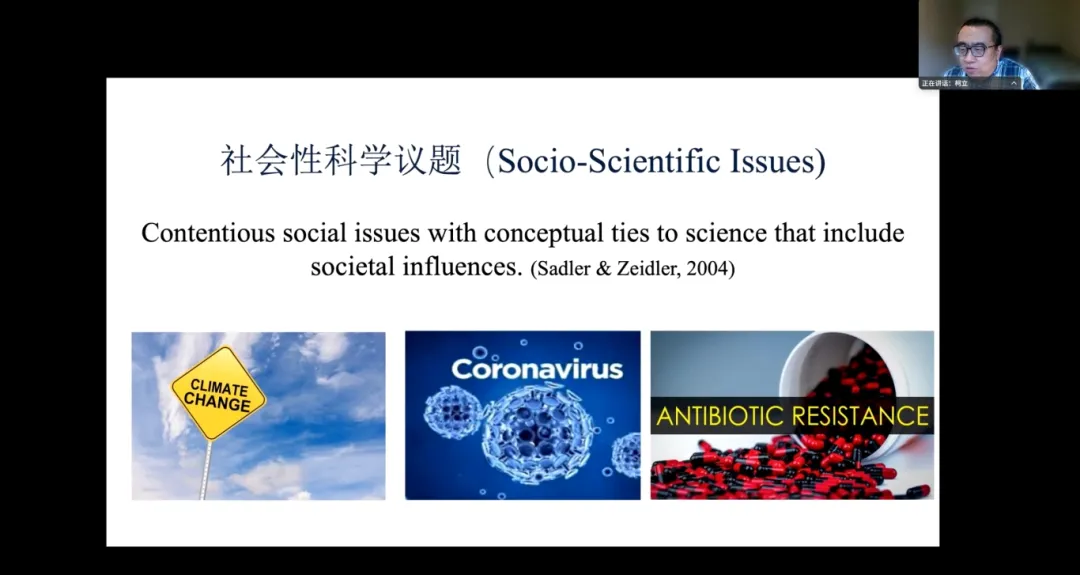
Dr. Ke Li reflected deeply on the challenges and future prospects of teaching social science issues. He believed that the goals of such teaching, how to design the teaching process, when and where to implement such teaching, what the student learning process is like, and how to disseminate research findings in this field are critical questions that urgently need to be addressed. He encouraged students and colleagues interested in science education or issue-based teaching to explore these valuable research directions.
During the discussion session, Dr. Ke Li provided detailed responses to audience questions such as "How to design social science issue contexts based on curriculum standards," "What is the relationship between media literacy and teaching social science issues," and "How can issue-based teaching in the context of the Anthropocene break away from anthropocentrism?" Dr. Ke Li's engaging sharing and in-depth discussions provided rich insights into various areas, including science education, moral education, issue-based teaching, and curriculum reform.
